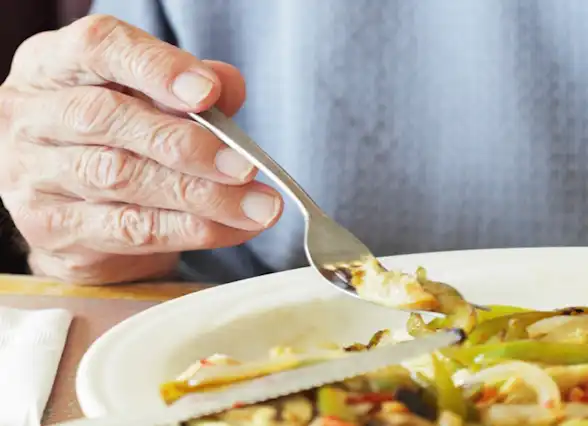Nutrition Before and After Surgery
Pre-surgical nutrition is vital to a successful surgery while post-surgical nutrition is essential for optimal recovery.
Get insurance benefits, legal documents, and medical records in one place

Helpful Highlights
Nutritional preparation before surgery is just as important as nutritional support after surgery.
Current research shows that the gut does not need to "rest" before and after surgery, as was once thought.
The Enhanced Recovery After Surgery (ERAS) protocol is an evidence-based guideline for nutritional support both before and after surgery.
Nutritional status is a strong predictor of postoperative outcomes and is recognized as an important component of surgical recovery programs.
Nutrition before surgery
Proper nutrition before surgery can help with surgical success and lead to better recovery. Current research shows that eating close to surgery and soon after surgery is safe and that recovery can be enhanced by following the Enhanced Recovery After Surgery (ERAS) nutritional protocol.
The body undergoes a lot of stress during surgery and requires a lot of energy to endure it. The stress of surgery can lead to weight and muscle loss, inflammation, poor wound healing, and complications like infection, especially in older adults with comorbidities. In older adults, just 3 days of bed rest can cause up to 10% of total leg muscle loss.
Research shows that having certain nutrition in the weeks and days before surgery can help reduce the risks and speed up recovery. Following basic guidelines, such as those from MyPlate for Older Adults is essential. The ERAS protocol, supported by the American College of Surgeons, gives these enhanced dietary recommendations:
Increase intake of high-quality proteins (meats that aren't processed) and complex carbohydrates (fruits and vegetables).
Support immune function with arginine and omega-3 fatty acids.
Arginine is a naturally occurring amino acid in red meat, poultry, fish, and dairy products.
Omega-3s are naturally occurring fatty acids in a variety of fish and fish oils.
Both can also be purchased over-the-counter as supplements, though natural food sources are better before surgery.
Increase carbohydrate intake in the 2 days leading up to the surgery fasting period (athletes call this "carbo-loading").
Solid foods up to 6 hours and liquids up to 2 hours before surgery, which may include a special clear carbohydrate drink given up to 2 hours before surgery.
Talk to your loved one's surgeon about ways to accomplish these nutritional aims and the ERAS protocol. Follow any specific dietary instructions from the surgeon.
In addition to fortifying their diet before surgery, you'll also want to keep them moving. Healthcare professionals like to call this "prehabilitation" or "prehab". Staying active before surgery can improve results and expedite both ambulation after surgery and ongoing recovery. Try a combination of aerobic exercise and weight lifting/resistance training for 20 minutes a couple of times a day in the weeks before surgery.
Nutrition after surgery
Recommendations for nutritional intake and support after surgery don't look all that different from those before surgery - because the increased nutrients continue to promote healing and physiological recovery from stress. As does mobility and exercise.
Earlier post-operative eating is associated with reduced infection complications, improved healing, and decreased length of hospital stay. It is recommended to resume eating as soon as possible after surgery, with the goal of returning to solid foods within 24 hours.
Nausea and/or a loss of appetite after surgery is a common side effect of surgical stress and the medications used to control consciousness and pain. In this case, encourage your loved one to eat smaller meals, more often. High protein and high fiber nutritional shakes are a good start.
Refueling the body after surgery is essential to speedy and successful healing, and even though your loved one may be resting after surgery, their body is continuing to use a lot of energy and nutrients to recover.
In addition to continuing to follow the pre-surgical recommendations above, there is also an emphasis on fiber and fluids (ideally water) after surgery. Fiber aids in digestion and bowel movements after surgery and helps restore normal gut motility and health. Fluids help to avoid constipation and diarrhea.
And just like before surgery, ensure that your loved one gets plenty of protein. Protein helps rebuild and maintain muscle mass and bone structure.
Some recommendations to get you started
Whole grains, berries and other dark-colored fruits, red bell peppers, nuts and seeds, kale, turkey and other lean meats, yogurt, prunes, sweet potatoes, mushrooms, oysters, avocadoes, eggs, leafy green vegetables, olive or other plant-based oils, and herbal teas.
Want to learn more?
The Abbott Nutrition Health Institute (ANHI) offers a course describing how the aging process can affect surgical outcomes and highlighting the role of nutrition in ERAS.
The ERAS Cardiac Society makes recommendations for implementing the ERAS protocol before, during, and after heart surgeries.
The ERAS Society has developed specific guidelines for implementing the ERAS protocol in many other types of surgeries.
RESOURCES
Hirsch, K.R., Wolfe, R.R., & Ferrando, A.A. (2021). Pre- and post-surgical nutrition for preservation of muscle mass, strength, and functionality following orthopedic surgery. Nutrients, 13(5), 167. DOI
International Council on Active Aging
Oregon Health & Science University
van Wissen, J., Bakker, N., Heus, C., & Houdik, A.P.J. (2016). Preoperative nutrition in elderly patients and postoperative outcome. Diet and Nutrition in Critical Care, pp. 741-752. DOI
Get more support and guidance on insurance benefits, medical records and legal forms.
Helpful brings together your insurance benefits, legal documents, and medical records in one personalized place — so you always know what you have, and never have to search again.

Technology for Health Tasks. Mental Health for the Tough Stuff.
Helpful connects your medical records, insurance, and caregiving tasks automatically. And when you need more than logistics, a therapist is here to guide you.
In-Network and Covered
For Individuals, Couples and Families
HIPAA Compliant, Data Stays Private






